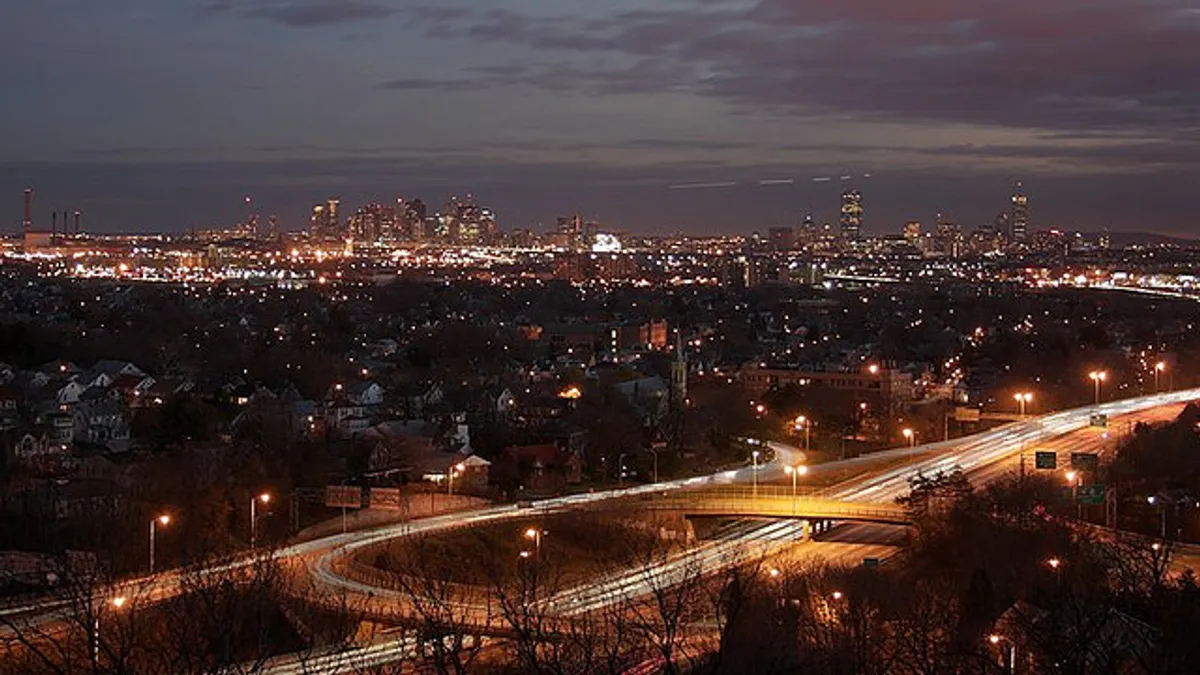
David Crane is at it again.
The outspoken CEO of NRG Energy, the nation's largest independent power producer and retail electricity provider, recently spoke to The Atlantic about where he sees utilities fitting in the future landscape of the power grid.
Spoiler alert: he doesn't.
“Utility executives are usually the antithesis of visionaries,” Crane says. "If you ask me who I worry about beating us, I give very little thought to the traditional power companies, the utilities."
This isn't the first time that Crane, a renowned firebrand in the traditionally low-key, conservative electric power industry, has stoked the flames. In a now-infamous Bloomberg piece titled "Why the U.S. Power Grid's Days are Numbered," NRG Energy CEO Crane said he's "working for the day the grid is diminished."
But while Crane may get the headlines for provoking electric utilities and telling their customers they can be their own utility, it is his vision of the future that's much more interesting.
DECENTRALIZING THE POWER GRID
We have reached the point where the old power plants are being replaced by distributed resources, Crane says, but the full transition to a decentralized model won't be achieved for another 20-25 years. "If we assume the pace of change accelerates, I definitely think there’s going to be a significant decline in the significance of big power plants," he tells The Atlantic. "But they’re still going to be around as the backbone of the grid for another 20 years."
Crane sees the natural gas distribution system as a "dominant paradigm" that could replace reliance on utilities. NRG is currently working on a 10-kilowatt machine that generates electricity from natural gas, biogas and garbage and stores electricity generated by rooftop solar panels. Crane envisions companies like NRG owning these devices, leasing them to customers and being able to use 10,000 of them as a 100-megawatt peak power plant.
"All we need is a technology that converts that natural gas into electricity in your basement and then solar has the partner it needs for me to tell the owners of the grid to just shove off and disconnect my wire," he says. "The day is coming when people are going to be converting natural gas into electricity in their own home."
NEW PLAYERS WILL REPLACE UTILITIES
Crane ultimately believes many utilities will resist the energy transition and new players will take their place. Technology titans such as Google and Apple, as well as home technology service companies like Comcast, Crane says, could capitalize on the opportunity.
Google has "shown the most interest" thus far, Crane notes, but "Apple has a history of showing no interest in an area and suddenly dominating it." Crane believes these new players will be "balancing everyone's power systems in their house" and that it "basically becomes an information technology-based industry."
But where does that leave utilities?
Ultimately, for Crane, the only unanswered question is whether utilities remain as a backup system or go extinct: "Does the grid just become a backup system the way the post office is effectively a backup system for Federal Express and UPS for high-value mail? Or do we actually get to the point where we are tearing down the grid because it’s actually not being used at all?"
Crane acknowledges that not everyone agrees with his vision. "Everyone in the power industry [realizes] there is a threat here, [but] there is a very wide discrepancy as to whether it's a real threat or a fad." Five years from now, he posits, everyone will realize it is in fact very real.
"I think it’s going to be a free-for-all," Crane says.
Enjoyed what you read? You may also want to read Utility Dive's look at FERC chairman Wellinghoff's explanation of why utilities must adapt or die.















